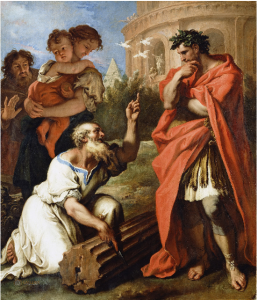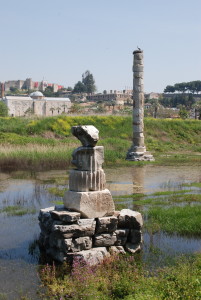![The sacred chickens of Rome in their coop from an engraving of military insignia and instruments of war by Nicolas Beatrizet. The full engraving is found at Speculum Romanae Magnificentiae, [Image no. B293], Special Collections Research Center, University of Chicago Library.](http://www.anecdotesfromantiquity.com/wp-content/uploads/2015/11/sacred_chickens-300x286.png)
The sacred chickens of Rome in their coop from an engraving of military insignia and instruments of war by Nicolas Beatrizet. The full engraving is found at Speculum Romanae Magnificentiae, [Image no. B293], Special Collections Research Center, University of Chicago Library.
If I were a chicken, I would consider the modern crop of humans to be an irreverent lot.
In ancient Roman times, a roost of prophetic chickens was habitually consulted by eminent statesmen on matters of the utmost importance. These ‘sacred chickens’ were revered for the power they conferred on those who heeded the predictions about the future that were gleaned from their eating behaviour. While the very notion might strike the modern reader as being almost comical, to the Romans the sacred chickens were no laughing matter.
During the First Punic War, Publius Claudius Pulcher turned to the sacred chickens for approval of his plan to launch a surprise attack on the Carthaginian fleet at the harbour of Drepana. When the chicken watcher notified Pulcher that they were not eating, which constituted a bad omen, he replied, ‘Since they do not want to eat, let them drink!’ and had them hurled into the sea [1]. The naval battle which ensued saw the near annihilation of the Roman fleet. A humiliated Pulcher returned to Rome in the aftermath of the disastrous engagement whereupon he was tried on the charge of impiety. What happened next is unclear but it seems that he was either convicted and sentenced to exile [2], or acquitted when the proceedings were adjourned due to a sudden shower of rain and the authorities decided not to bother starting it all over again [3]. Whatever the outcome, Pulcher evidently died soon afterwards. This is attested by his sister Claudia, who was fined for remarking on how she wished her brother would return from the dead to dispose of Rome’s riffraff once again by virtue of his ineptitude, after getting caught up in a crowd on her way home from the games [4].
On another occasion the sacred chickens ran off into the woods just as Gaius Hostilius Mancinus was preparing to consult them about his upcoming campaign against the Numantians. The chickens were searched for high and low, but they were never found. As for Mancinus, he suffered a decisive military defeat at the hands of the Numantines, was compelled to accepted the terms of their peace treaty, and returned to Rome to face a trial by the Senate. The Conscript Fathers refused to ratify the treaty and decided instead for Mancinus to be handed over stark naked to the Numantines. This was arranged but the Numantines refused to accept the wretch [5, 6].
Lastly Tiberius Gracchus — the Bernie Sanders of the Roman Republic — disregarded an unfavourable omen from the sacred chickens at his home about attending a political assembly at the Campus Martius. It would take socialism two thousand years to recover from what happened next. All this was set into motion when Gracchus stubbed his toe very badly on his way out the door to speak at the assembly about his proposed land redistribution legislation. Matters only got worse from there. Gracchus was straightaway assailed by a trio of crows that knocked a roof-tile down in front of his feet as they flew away in a mad frenzy. But he continued on with a martyr’s stubbornness to the Capitol where he was summarily confronted by an angry mob of senators. In the mayhem that followed, the champion of the people was beaten to death with a wooden club and dumped into the Tiber [7]. So much for socialism in the Roman Republic. Fortunately for Bernie Sanders, the ruling elites in America have other more humane mechanisms set in place to prevent troublemaking misfits like him from ever coming to power.

Battery caged hens. Source peta.org.
All this is to say that the chickens of those times commanded the respect of the people. It is difficult to imagine a world in which chickens were appreciated for reasons that go beyond being a ready source of meat. But the relationship between people and domestic animals in ancient times was very different from that of our own. Across the ancient world, if one wanted to eat meat, one could only do so within a sacrificial context. The institution of the temple complex ensured that animal life was held sacred. The same cannot be said for the barnyard animals of our day — far from it. Consider modern chickens who live in abject misery on factory farms until it comes time to be unceremoniously processed and consumed by the people of the developed world. The full horrors of the factory farming of chickens have been publicised by PETA [8] (see footnotes 1 & 2). And while chickens may have it worst of all, cows and pigs fare scarcely any better, if at all.
The global civilisation to which we belong has by now surpassed all the achievements of ancient world with one glaring exception: the treatment of domestic animals. This especially holds true of chickens. But if we are ever to meet their moral standard on a societal scale, it ought not to be on account of the same primitive superstitions. Fortunately animal rights — the ethic that animals be viewed as persons, rather than property or commodities — has been gradually gaining acceptance in society, owing mainly to the efforts of dedicated activists. While this is cause for optimism, the biggest obstacle for the advancement of animal rights is, I think, that we tend to either rationalise our actions that violate the ethical principles we espouse, or at least place a cognitive dissonance between them. Meat is simply too delicious for the majority of us to forgo. The saintly turn to veganism, but this monastic resolution, while admirable, cannot be expected to spread across a sizeable proportion of the population. The best hope as I see it rests in the large-scale production of synthetic meat. It is only then that we will come as a society to perceive clearly the evils of industrial meat production, however their synthetic competitors have not yet perfected their craft.
Footnotes
[1] I myself have anecdotal evidence in support of these claims. My cousin Jimmy worked at a chicken processing plant somewhere in Nova Scotia, Canada one summer back in the 1990s. He later told me of how his duties included the hanging chickens from their feet in ‘the hanging room.’ From there the chickens were automatically conveyed to an adjoining room whereupon they were met with a chicken decapitating buzzsaw in monotonous succession. He was afterwards made to put on big rubber gloves and go back to pluck off any partially severed heads. He works as an accountant nowadays, I think.
[2] According to PETA sources in the same article: ‘Chickens are inquisitive, interesting animals who are as intelligent as mammals such as cats, dogs, and even some primates.’ but this I cannot accept. On the contrary, chickens are the single most idiotic vertebrate with which I have had any firsthand interaction. In addition to my own personal experiences, a certain schoolteacher who once raised a roost of chickens for his class told me that they need to be kept in their coop during times of rain, because otherwise they will stare up at the sky with open beaks and drown from the falling raindrops.
References
[1,3-5,7] Valerius Maximus: Memorable Deeds and Sayings: One Thousand Tales from Ancient Rome, translated by Henry John Walker (2004), Hackett Publishing Company.
I have taken the liberty to include quotations from the book below, as there is at present no English translation of Valerius Maximus available freely online. Quote ids refer to the location of the passages in the text. For example, the id 1.4.3 is understood to mean the passage at book 1, chapter 4, section 3. Footnote enumeration is the same as in Walker.
[1] 1.4.3 Story as recorded by Julius Paris: During the First Punic War Publius Claudius wanted to fight a naval battle, and asked for the auspices in the traditional way of our forefathers. When the man in charge of the sacred chickens replied that they were not coming out of their cage, Claudius ordered them to be thrown into the sea, saying, “Since they do not want to eat, let them drink!”
Story as recorded by Nepotianus: During the First Punic War, Publius Claudius, a headstrong man, consulted with the scared chickens. When someone said that the chickens were not eating, which was a bad omen, he replied, “Let them drink!” and ordered that they be thrown into the sea. Shortly after that, he lost his fleet off the Aegates Islands. This was a great disaster for our Republic and for Claudius himself [83].
Footnote 83: Publius Claudius Pulcher (cos, 249 B.C.) lost most of the fleet in a disastrous attack on Drepanun (on the west coast of Sicily near the Aegates Islands) during the First Punic War (264-241 B.C.). The sacred chickens were no laughing matter in Rome (see auspices in the Glossary), and he narrowly escaped being convicted for treason.
[3] 8.1.absol.4 I do not know whether Publius Claudius acted more unjustly toward our religion or our country, since he neglected the most ancient customs of our religion and lost the finest fleet of our country [10]. He was placed at the mercy of the angered people, and it was believed that there was no way he could escape his inevitable punishment, but by virtue of a sudden shower of rain he was saved from a conviction. The hearing was disrupted, and they decided not to start it all over again, since the gods seemed to have obstructed it. So a storm at sea had forced him to plead his case, and a storm from heaven had brought him an acquittal.
Footnote 10: Publius Claudius Pulcher was consul in 249 BC. He had thrown the sacred chickens into the sea and then lost most of the Roman fleet (see 1.4.3).
[4] 8.1.damn.4 Claudia must be added to these cases, because a wicked wish she made ruined her, even though she was innocent of the charge made against her. As she was coming back from the games, she was jostled by the crowd, so she made a wish that her brother, who had caused great losses to our naval forces [33], would come back to life, and that he he would be elected consul several times so that he could get rid of the city’s excess population by his ill-fated leadership [34].
Footnote 33: Her brother Publius Claudius Pulcher (consul, 249 BC) lost a fleet during the First Punic War (see 1.4.3 and 8.1.absol.4).
Footnote 34: The aediles of the plebs fined Claudia for the misanthropic statement in 246 BC.
[5] 1.6.7 In his insane perseverance, Gaius Hostilius Mancinus followed the headlong rashness of Flaminius. As this consul was about to go off to Spain, the following prodigies occurred [124]. He wanted to make a sacrifice at Lavinium, but when the sacred chickens were released from their cage, they ran off into nearby woods, and althought they were searched for with the greatest diligence, they could not be found [125]. He reached the Port of Hercules on foot, and as he was going on board his ship there, these words from no human speaker came to his ears: ‘Wait, Mancinus.’ [126] He was terrified by this, so he turned back and headed to Genoa, and when he had gone onto a boat there, an exceptionally large snake was seen and then disappeared from sight. So the number of these prodigies equalled the number of his disasters: and unfortunate battle, a shameful peace treaty, and a deplorable handover [127].
Footnote 124: Gaius Hostilius Mancius was consul in 137 BC and was defeated by the Numians in Spain.
Footnote 125: Lavinium was near the coast of Latium.
Footnote 126: The Port of Hercules is now called Monaco.
Footnote 127: The Senate refused to ratify his peace treaty and handed him over to the Numantines in 136 BC.
[7] 1.4.2 When Tiberius Gracchus was going up for election as tribune, he consulted the sacred chickens at his home, and they opposed his going to the Campus Martius. When he went on obstinantly, he soon knocked his foot outside the door so badly that he broke a joint. Then three crows flew in his face with ill-omened claws, started fighting among themselves, and in doing so knocked a tile down before his feet. When he consulted the gods on the Capitol he rceived similar auspices. He had behaved badly as a tribune, so he was killed by Scipio Nasica: first he was struck with a piece of a bench, then he was killed with a wooden club. The plebeian aedile, Lucretius, ordered that his body, and all the bodies of those who were killed with him, be left unburied and thrown into the Tiber. (recorded by Nepotianus)
Footnote 82: Tiberius Sempronius Graccus (tribune of the plebs, 133 BC) was a populist politician. He and his supporters were murdered by alynch gang of senators led by Publius Cornelius Scipio Nasica Serapio (consul, 138 BC). This conservative politician was also the chief pontiff from 141 BC until his death in 132 BC. The plebian aedile for 133 BC was Lucretius Vespillo.
[2] Cicero: De Divinatione, translated by W. A. Falconer (1923), Book 2, Chapter 33, Loeb Classical Library. Read this passage at the Bill Thayer’s online collection of classical texts.
[6] Appian: The Foreign Wars, translated by Horace White (1913), Book: Wars in Spain, Chapter 13, Section 83, Loeb Classical Library. Read this passage at the Perseus Digital Library.
[8] Chickens Used for Food. PETA. Retrieved 2015-11-08.

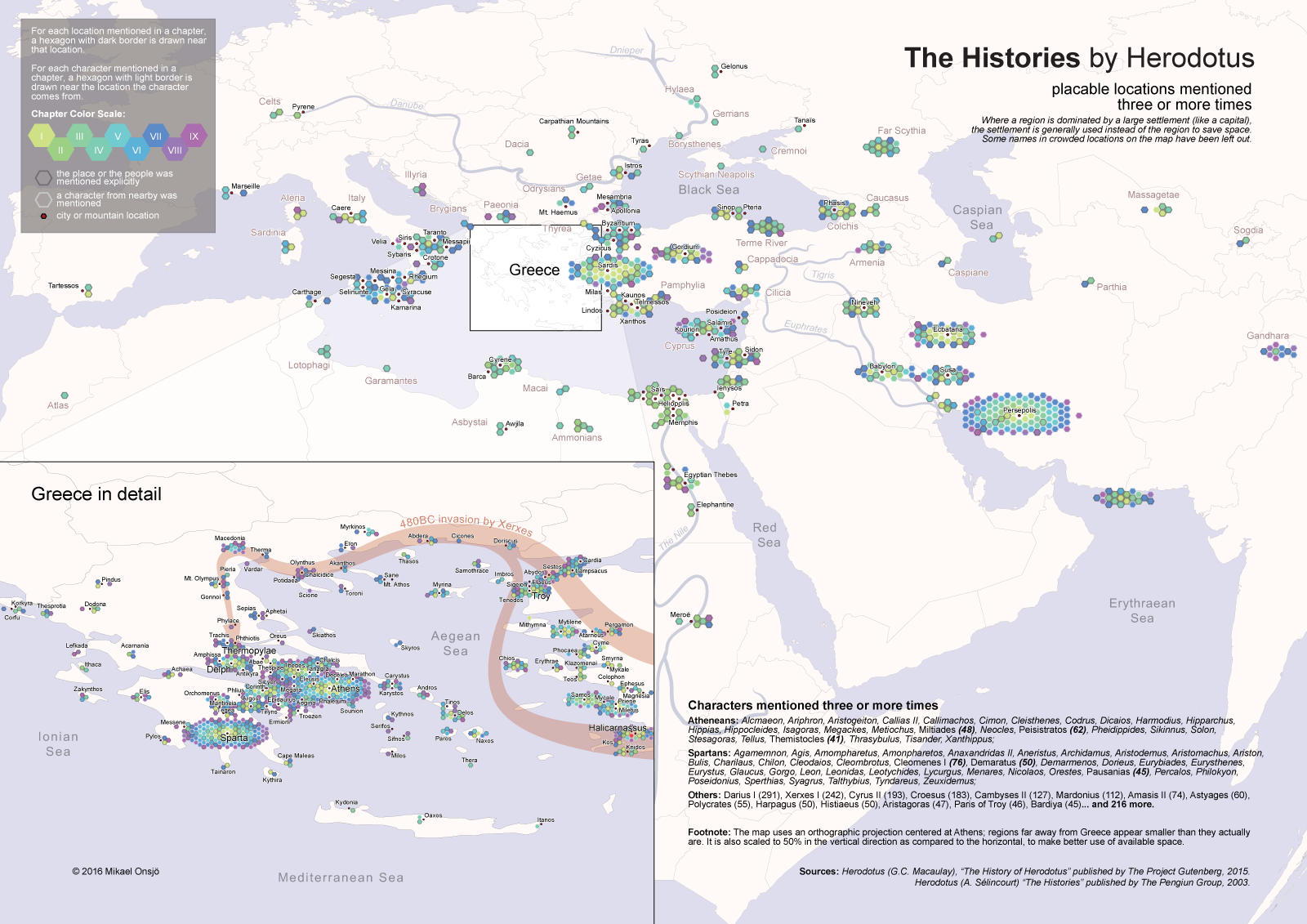

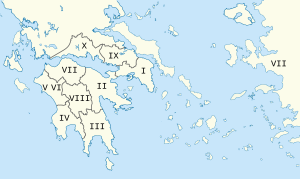

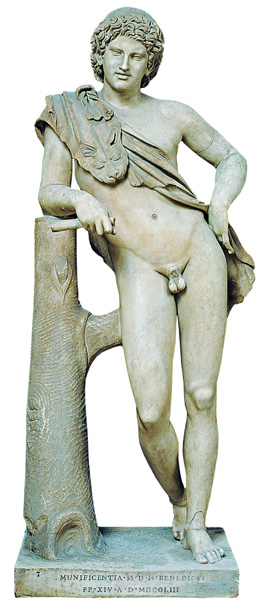
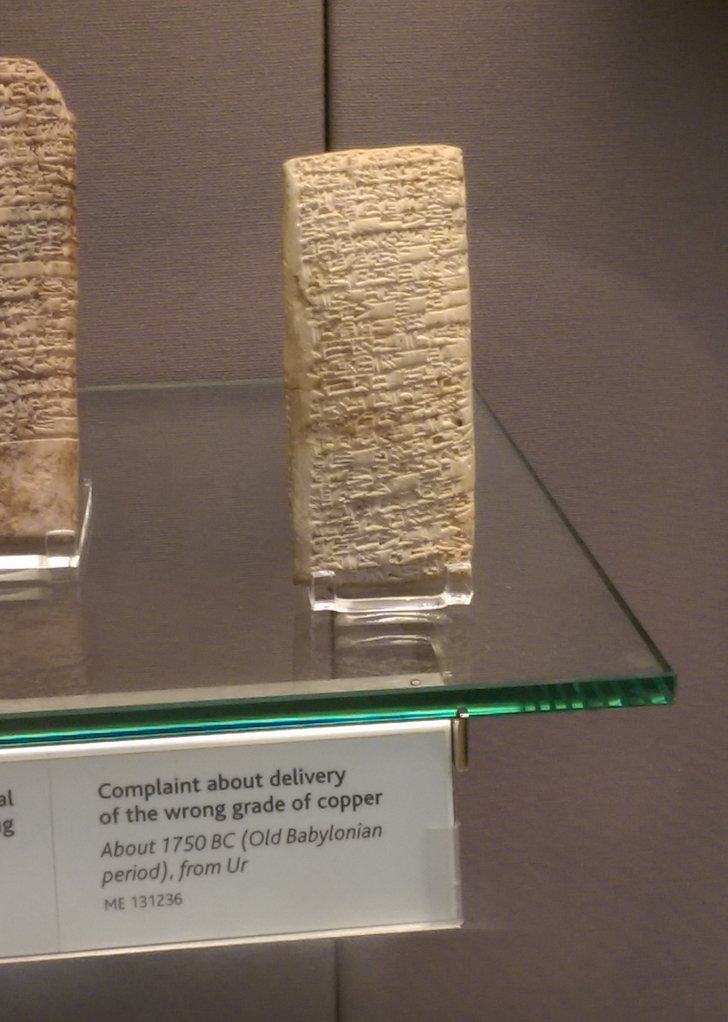

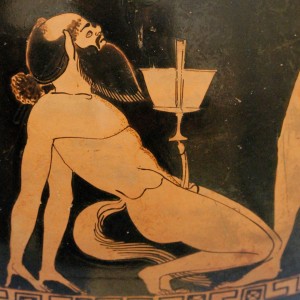
![The sacred chickens of Rome in their coop from an engraving of military insignia and instruments of war by Nicolas Beatrizet. The full engraving is found at Speculum Romanae Magnificentiae, [Image no. B293], Special Collections Research Center, University of Chicago Library.](http://www.anecdotesfromantiquity.com/wp-content/uploads/2015/11/sacred_chickens-300x286.png)






